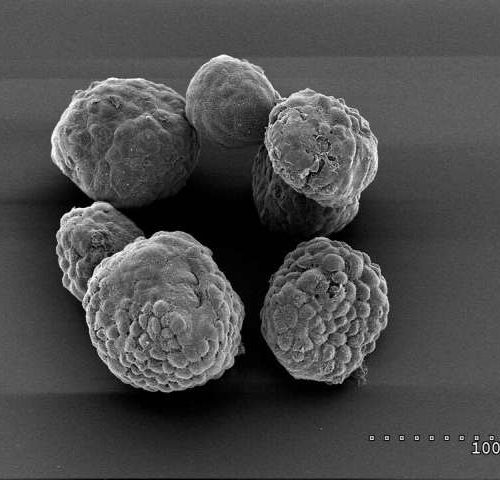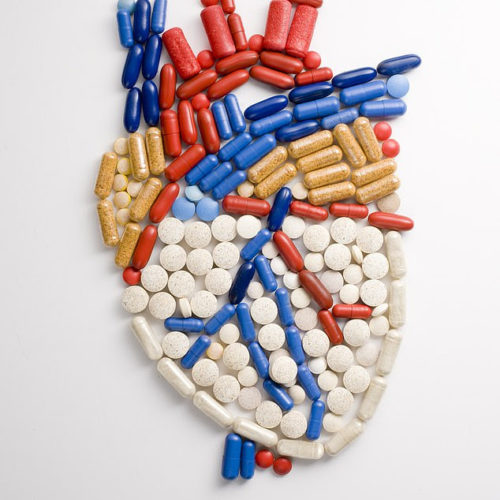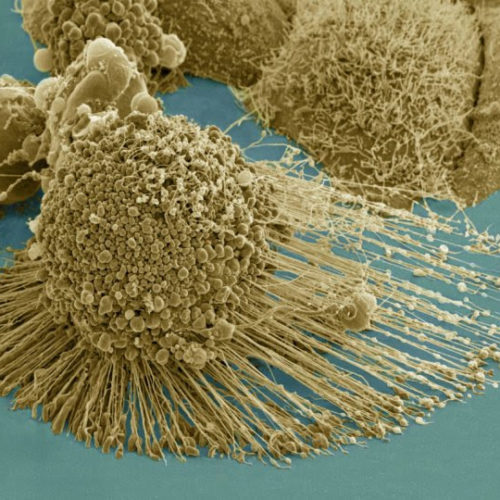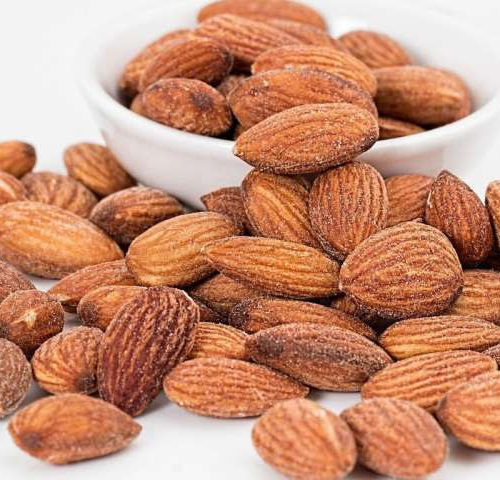By HARRIET ALEXANDER FOR DAILYMAIL.COM Cholesterol-lowering drug Fenofibrate (Tricor) is providing a glimmer of hope Scientists in New York and Jerusalem believe the drug could help treat COVID The drug could reduce symptoms so that COVID-19 is no worse than a common cold, the study found Two scientists researching a potential treatment for coronavirus believe...
Tag: <span>cholesterol</span>
Blocking cholesterol storage could stop growth of pancreatic tumors
by Cold Spring Harbor Laboratory Organoids of mouse pancreatic tumor cells grown “ex vivo,” outside the body. Organoids are used as a model system to study tumor biology and treatments. Credit: Tobiloba Oni, Tuveson lab/CSHL Scientists at Cold Spring Harbor Laboratory (CSHL) have found that they can stop the growth of pancreatic cancer cells by...
New treatment for common form of muscular dystrophy shows promise in cells, animals
University of Alberta-led team develops synthetic molecule that stops production of toxic muscle-killing protein UNIVERSITY OF ALBERTA FACULTY OF MEDICINE & DENTISTRY UNIVERSITY OF ALBERTA MEDICAL GENETICIST TOSHIFUMA YOKOTA LED A RESEARCH TEAM THAT CREATED A POTENTIAL NEW TREATMENT FOR ONE OF THE MOST COMMON FORMS OF MUSCULAR DYSTROPHY. Researchers have designed a potential new...
Premature epigenomic aging acts like a ‘sleeper cell’ that is awakened by Western-style diet
by Baylor College of Medicine The epigenome is sometimes referred to as the “software” or “operating system” of the genome. It comprises small chemical modifications to DNA and the proteins that make up our chromosomes, and controls the activity of all the genes within the genome. During early life, as our organs develop, the epigenome...
Multi-ethnic study suggests vitamin K may offer protective health benefits in older age
Older adults with low vitamin K had higher death risk over 13 years compared to those with adequate vitamin K levels TUFTS UNIVERSITY, HEALTH SCIENCES CAMPUS BOSTON (June 15, 2020)– A new, multi-ethnic study found older adults with low vitamin K levels were more likely to die within 13 years compared to those whose vitamin...
For years we were told that ‘good’ cholesterol reduces the risk of suffering a heart attack, but new research may be about to change that advice
By BARNEY CALMAN FOR THE MAIL ON SUNDAY Doctors have been advising patients to take ‘good’ cholesterol when possible They warned against LDL, which is deemed bad and promoted HDL as good However, new research indicates that very high HDL levels could be bad Patients with too much ‘good’ cholesterol could be at higher risk...
Cancer cells adapt to lack of key nutrient, posing potential problems for drugmakers
Cancer can adapt its metabolism in a way that could overcome lipid-focused therapies being developed by drug companies, a University of Toronto study has found. “Several clinical trials have failed because metabolism is such an adaptive process by which cancer cells gain drug resistance,” says Michael Aregger, a co-lead author and research associate who is...
Social isolation increases the risk of heart attacks, strokes, and death from all causes
by European Academy of Neurology Those who are socially isolated are over 40% more likely to have a cardiovascular event, such as a heart attack or stroke, than those who were socially integrated, new research has shown. The German study, due to presented tomorrow at the European Academy of Neurology (EAN) Virtual Congress, found that...
Eating almonds can improve vascular health, study finds
by King’s College London Research led by Dr. Wendy Hall, Reader in Nutritional Sciences at King’s College London and published in the American Journal of Clinical Nutrition found that replacing popular snacks such as biscuits and crisps with almonds can improve endothelial function, a key indicator of vascular health, and lower ‘bad’ LDL-cholesterol. Participants who...
PCSK9 inhibitor with statin does not cause loss in memory, mental skills in high-risk patients
by American College of Cardiology Heart disease patients taking evolocumab in addition to a statin to achieve extremely low levels of cholesterol do not show increased incidence of neurocognitive impairments, including memory loss or reduction in executive functions (mental skills), while at the same time have a decrease in recurrent cardiovascular events such as stroke...









